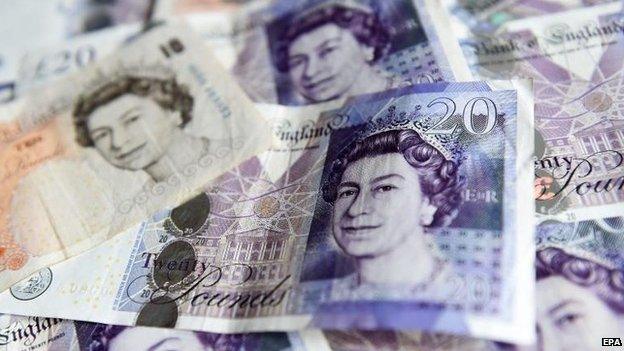Low inflation to give UK finances '£6bn windfall'
- Published

UK government finances will be given a £6bn windfall as lower oil prices drag on inflation.
A related boost to consumer spending could also help create a rosier Budget picture for Chancellor George Osborne.
The Office for Budget Responsibility is expected to produce a stronger forecast for UK economic growth at Budget time.
BBC economics editor Robert Peston said a fall in inflation expectations generates an annual windfall for the Treasury of around £6bn.
In January UK inflation hit a record low of 0.3%, helped by oil prices.
The reduction in the squeeze on public finances is "more or less automatic", he said.
Low inflation means lower payments by the government on index-linked debt. It also means lower increases on certain benefits, he said.
Reduced spending on welfare means there could be more cash available for expenditure on schools, hospitals, and the police, he added.
Other experts said Mr Osborne could use the spare cash to give more wiggle room in meeting deficit-reduction plans.
According to the EY ITEM Club, the forecast for borrowing in the current fiscal year ending this month is likely to be revised down to £89bn.
Experts at HSBC expect a figure of £90.6bn, while they also see the OBR cutting its prediction for 2015/16's deficit from £75.9bn to £73.4bn.